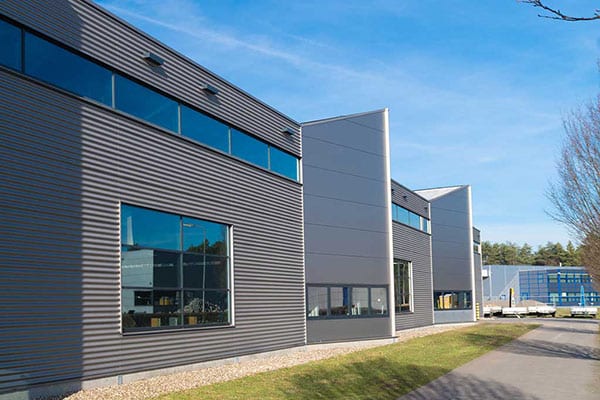A Comprehensive Guide to Commercial Property Search Strategies

Commercial property search Boulder is a crucial process for businesses looking to establish or expand their operations. Whether you’re a startup seeking your first office space or a seasoned investor scouting for lucrative opportunities, finding the right commercial property requires careful consideration and thorough research.
Importance of Commercial Property Search
Finding the Right Location
The location of a commercial property can significantly impact its success. Proximity to target customers, accessibility, and visibility are key factors to consider. Conducting a comprehensive search allows businesses to identify areas that align with their target market and strategic objectives.
Understanding Market Trends
Market dynamics play a vital role in commercial real estate. By staying informed about market trends, such as vacancy rates, rental prices, and demand-supply dynamics, businesses can make informed decisions during the property search process. This knowledge helps in identifying emerging opportunities and mitigating potential risks.
Evaluating Investment Potential
For investors, commercial property search involves assessing the investment potential of different properties. Factors such as rental yield, capital appreciation, and overall market conditions influence investment decisions. Conducting thorough due diligence ensures that investors select properties that align with their financial goals and risk tolerance.
Types of Commercial Properties
Commercial properties encompass a diverse range of asset classes, each serving unique purposes and catering to different industries.
Office Spaces
Office spaces are designed to accommodate businesses and professional services. They vary in size, layout, and amenities, catering to the needs of different organizations, from startups to multinational corporations.
Retail Spaces
Retail spaces include storefronts, shopping centers, and malls where businesses sell goods and services directly to consumers. Location, foot traffic, and visibility are critical considerations for retail tenants seeking commercial space.
Industrial Properties
Industrial properties comprise warehouses, manufacturing facilities, and distribution centers. These properties are essential for businesses involved in production, storage, and distribution activities. Factors such as transportation infrastructure and proximity to suppliers and customers influence industrial property selection.
Mixed-Use Developments
Mixed-use developments combine residential, commercial, and recreational spaces within a single property. These versatile properties offer a blend of amenities and services, catering to diverse demographics and enhancing the overall quality of life.
Factors to Consider Before Starting a Commercial Property Search
Before embarking on a commercial property search, businesses need to evaluate their needs, preferences, and constraints.
Budget and Financing Options
Determining a realistic budget and exploring financing options are crucial steps in the property search process. Businesses should consider factors such as down payment requirements, loan terms, and operating expenses to assess affordability and financial feasibility.
Business Needs and Requirements
Understanding the specific needs and requirements of the business is essential for identifying suitable properties. Factors such as space requirements, layout preferences, and amenities influence property selection and leasing negotiations.
Future Expansion and Growth
Businesses should consider their long-term growth plans and scalability requirements when searching for commercial properties. Selecting a property that accommodates future expansion or modification ensures flexibility and minimizes the need for relocation in the future.
Steps in Conducting a Commercial Property Search
Navigating the commercial property market requires a systematic approach to ensure a successful outcome.
Define Search Criteria
Start by defining clear search criteria based on business needs, budget, and location preferences. Consider factors such as property type, size, proximity to amenities, and lease terms when creating a property wishlist.
Research Available Properties
Utilize online listing platforms, real estate databases, and professional networks to research available properties that match your criteria. Narrow down your options based on key attributes and conduct preliminary assessments to identify promising candidates.
Visit and Inspect Properties
Schedule site visits to shortlisted properties to evaluate their suitability firsthand. Assess factors such as condition, layout, accessibility, and surrounding environment during property inspections. Take note of any potential issues or concerns that may impact your decision.
Negotiate Terms and Conditions
Once you’ve identified a preferred property, engage in negotiations with the landlord or property owner to finalize lease terms and conditions. Seek the guidance of legal and financial advisors to ensure that the lease agreement aligns with your interests and objectives.
Tips for a Successful Commercial Property Search
Navigating the commercial property market can be challenging, but following these tips can help streamline the process and maximize success.
Work with a Professional Broker or Agent
Engage the services of a qualified commercial real estate broker or agent who specializes in your target market. Their expertise, industry knowledge, and network can provide valuable insights and assistance throughout the property search and leasing process.
Utilize Online Resources and Tools
Take advantage of online resources, including property listing websites, market reports, and analytical tools, to gather information and insights relevant to your property search. Leverage technology to streamline the search process and access real-time market data.
Network with Industry Professionals
Build relationships with industry professionals, including landlords, developers, investors, and fellow tenants, to expand your network and access insider information. Attend industry events, conferences, and networking functions to connect with key stakeholders and stay abreast of market developments.
Challenges in Commercial Property Search
Despite its potential rewards, commercial property search comes with its fair share of challenges and complexities.
Market Competition
Competing for desirable commercial properties in a competitive market can be challenging, especially in high-demand areas with limited availability. Businesses may encounter bidding wars and aggressive competition from other tenants or investors vying for the same properties.
Regulatory Compliance
Navigating regulatory requirements and compliance obligations adds complexity to the property search process. Businesses must ensure that prospective properties comply with zoning regulations, building codes, environmental standards, and other legal requirements to avoid potential issues and liabilities.
Economic Factors
Economic factors, such as interest rates, inflation, and economic cycles, can impact the commercial property market’s dynamics and investment performance. Businesses need to monitor macroeconomic trends and factors that may affect property values, rental rates, and overall market stability.
Conclusion
Commercial property search is a multifaceted process that requires careful planning, diligent research, and strategic decision-making. By understanding the importance of location, market trends, and investment potential, businesses can identify and secure properties that meet their needs and objectives. Whether you’re searching for office space, retail storefronts, or industrial facilities, following best practices and leveraging professional expertise can enhance your chances of success in the competitive commercial real estate market.
FAQs (Frequently Asked Questions)
- What are the key factors to consider when searching for commercial property?
- Location, budget, business needs, and growth potential are among the critical factors to consider during a commercial property search.
- Why is market research important in commercial property search?
- Market research helps businesses understand current trends, assess demand-supply dynamics, and identify investment opportunities in the commercial real estate market.
- How can businesses mitigate risks during the property search process?
- Conducting thorough due diligence, seeking professional advice, and staying informed about regulatory requirements can help businesses mitigate risks and make informed decisions.
- What role do commercial real estate brokers play in the property search process?
- Commercial real estate brokers provide valuable expertise, market insights, and negotiation skills to help businesses identify, evaluate, and secure suitable commercial properties.
- How can businesses stay competitive in the commercial property market?
- By staying proactive, adaptable, and well-informed about market trends and opportunities, businesses can position themselves competitively and capitalize on favorable market conditions.
Stay in touch to get more updates & news on Buzz!






